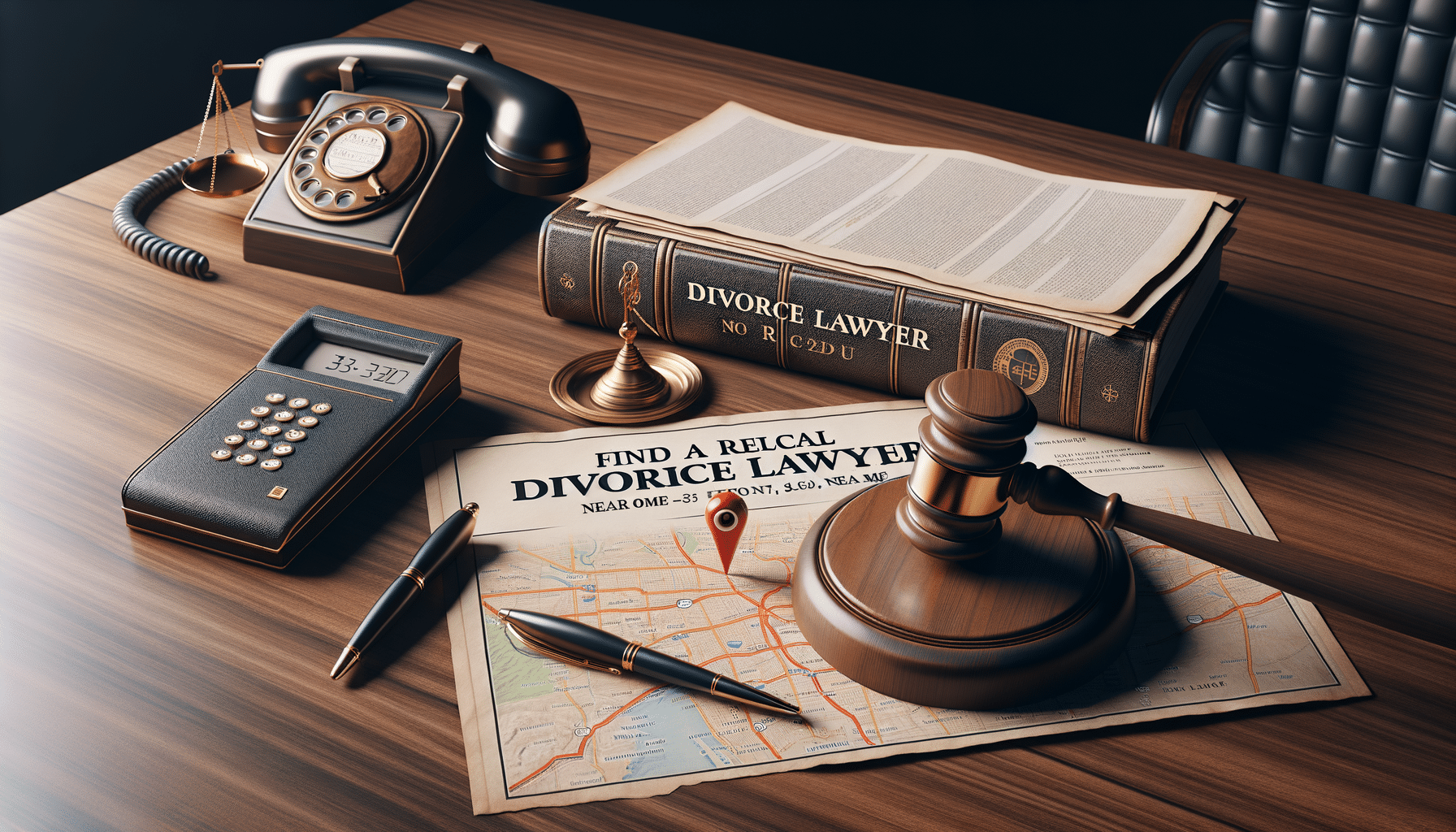
Finding a Reliable Divorce Lawyer in Your Area
Understanding the Role of a Divorce Lawyer
Divorce can be a challenging and emotionally taxing process, and having the right legal support is crucial. A divorce lawyer specializes in family law and helps clients navigate the complexities of divorce proceedings. Their role is to provide legal advice, negotiate settlements, and represent their clients in court if necessary. It’s important to understand that a divorce lawyer is not just a legal advisor but also a mediator who helps resolve issues related to asset division, child custody, and support arrangements.
When considering hiring a divorce lawyer, it’s essential to understand the scope of their responsibilities. They will assist in filing all necessary legal documents, ensuring compliance with state laws, and advocating for your rights. Additionally, they can provide guidance on how to manage financial and emotional aspects during this transition. A reliable lawyer will focus on achieving a fair outcome while minimizing conflict and stress.
Key qualities to look for in a divorce lawyer include strong negotiation skills, empathy, and a deep understanding of family law. It’s beneficial to choose someone who is experienced in handling cases similar to yours and who can offer personalized advice tailored to your situation.
How to Find a Divorce Lawyer Near You
Finding a divorce lawyer near you involves several steps to ensure you choose the right professional for your needs. Start by asking for recommendations from friends, family, or colleagues who have gone through a similar experience. Personal referrals can provide valuable insights into a lawyer’s competence and approach.
Online directories and legal associations are also excellent resources for locating reputable divorce lawyers in your area. Many websites offer reviews and ratings, which can help you gauge a lawyer’s reputation and track record. Additionally, local bar associations often provide referral services, connecting you with qualified attorneys who specialize in family law.
When searching for a “divorce lawyer near me,” consider scheduling consultations with a few candidates. This allows you to assess their communication style, experience, and compatibility with your needs. During these meetings, inquire about their approach to handling divorce cases, their fee structure, and their availability to take on your case.
Evaluating the Expertise of a Divorce Lawyer
Once you have a list of potential divorce lawyers, it’s crucial to evaluate their expertise and experience. Look for a lawyer with a strong background in family law and a proven track record of successful case outcomes. Experience in handling cases similar to yours can be a significant advantage, as they will be familiar with the intricacies of your situation.
During your consultations, ask about the lawyer’s experience with cases involving complex asset division, child custody disputes, or spousal support. Understanding their approach to these issues can help you determine if they are the right fit for your case. Additionally, inquire about their courtroom experience, as some cases may require litigation if settlements cannot be reached amicably.
It’s also beneficial to consider a lawyer’s reputation within the legal community. A well-regarded lawyer is likely to have strong relationships with judges and other attorneys, which can be advantageous during negotiations or court proceedings. Look for any recognitions or awards that highlight their expertise and commitment to their clients.
Understanding Legal Fees and Costs
Legal fees and costs are important considerations when hiring a divorce lawyer. Understanding the financial aspect of legal representation can help you make an informed decision and avoid unexpected expenses. Most divorce lawyers charge either a flat fee or an hourly rate, and it’s essential to clarify this during your initial consultation.
Ask for a detailed breakdown of their fee structure, including any additional costs such as filing fees, court costs, and expenses for expert witnesses. Some lawyers may offer payment plans or alternative fee arrangements, so it’s worth discussing these options if cost is a concern.
Transparency is key when it comes to legal fees. A reputable lawyer will provide a clear and comprehensive fee agreement, outlining all potential costs and payment terms. This ensures that there are no surprises down the line and allows you to budget accordingly.
- Flat fee: A set amount for handling your entire case.
- Hourly rate: Charges based on the time spent on your case.
- Retainer: An upfront payment that covers initial services and is replenished as needed.
Making the Final Decision
After considering all the factors, it’s time to make a decision on which divorce lawyer to hire. Reflect on the information gathered during your consultations and weigh the pros and cons of each candidate. Trust your instincts and choose a lawyer who not only has the expertise but also makes you feel comfortable and supported.
Consider their communication style and responsiveness, as effective communication is vital throughout the divorce process. A lawyer who is attentive and willing to answer your questions can provide peace of mind and reduce anxiety during this challenging time.
Finally, ensure that the lawyer you choose aligns with your goals and values. Whether you prioritize a collaborative approach or are prepared for litigation, finding a lawyer who shares your vision can lead to a more satisfactory outcome.
Remember, the right divorce lawyer will guide you through the legal complexities, advocate for your interests, and help you transition to the next chapter of your life with confidence.


